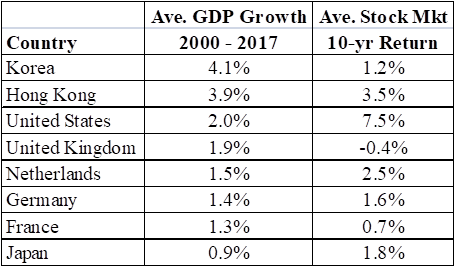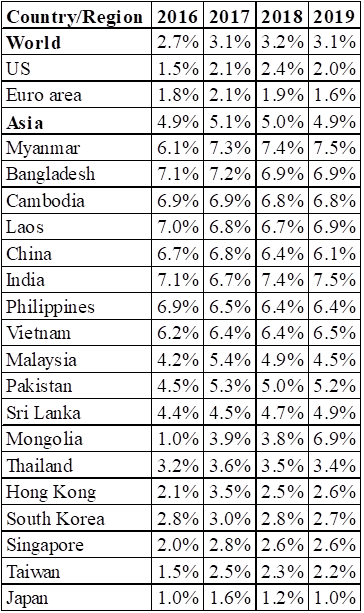In a recent piece, I made the case for investing in emerging markets. Upon further reflection and research, I make a more specific recommendation: you should hold Chinese equities in your portfolio. Details of my reasoning and specific investment suggestions follow.
Do GDP Growth Rates Matter When Buying Equities?
Intuitively, one might think, ceteris paribus, that equity investments in rapidly growing countries would yield higher returns than investments in slower growing countries. However, the Table 1 data do not support this contention: GDP growth rates are not correlated with stock market returns. This does not mean that growth rates are not important. It simply means that in reality, all things are not equal and that factors other than GDP growth rates affecting stock prices.
Table 1. – GDP Growth Rates and Stock Market Returns, Selected Countries

Sources: IMF for GDP Growth, ishare ETFs for Market Returns
That all having been said, it is still informative to look at GDP growth rates and this is done in Table 2 where Asian countries are ranked by projected 2017 growth rates..
Table 2. – GDP Growth Rates, Selected Regions, Countries

Source: Focus Economics
The country that stands out on this list is China. Unlike other listed emerging nations, China is politically stable: the Chinese Communist Party is in control. And unlike India, China has made the infrastructure investments needed for future rapid growth. But there are other things that make Chinese equities attractive:












Leave A Comment